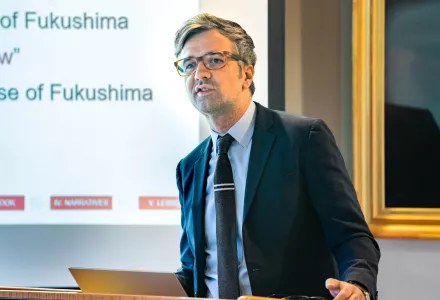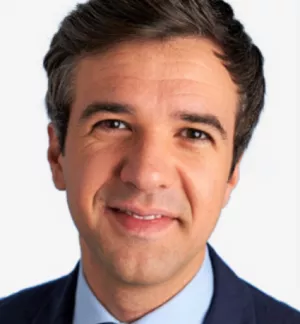
Julius Weitzdörfer is a Stanton Nuclear Security Junior Faculty Fellow
Julius Weitzdörfer’s earliest childhood memories are the major global events of 1986—the Space Shuttle Challenger explosion and the Chernobyl disaster. Looking back, he realizes that these events must have contributed to shaping his later research interests in managing technological risks.
Weitzdörfer is a Stanton Nuclear Security Junior Faculty Fellow at the Belfer Center, following four years at the Center for the Study of Existential Risk at Cambridge, England. At the Belfer Center, he studies recovery from nuclear or radiological disasters as a joint fellow with the Project on Managing the Atom and the International Security Program.
Weitzdörfer, who spent three years in Japan, including in the wake of the Fukushima nuclear disaster, focuses his research on the law and policy responses of the Japanese government.
Among the foundations of risk management is the idea that “every risk has a probability side and an impact side,” he said. “If you want to reduce the risk, of course it’s good to reduce the probability, but you can also make progress by reducing the potential impact of the event.”
Triage, evacuation, resettlement, decontamination, and, if possible, returning to the site of a disaster, are all important for rebuilding communities and economies following a nuclear incident. The faster these steps happen, the better for everyone. In Fukushima, every year people have been unable to return has cost the country an additional $10 billion. Weitzdörfer hopes policies can be established to better prepare for nuclear “error and terror” scenarios—wherever they happen.
“The atom is quite literally the smallest scale thing for a policymaker to think about... But on the other hand, the consequences of bad management of the atom—nuclear war—would be likely the most existential and largest scale issue a policymaker could think of.”
“Future generations will not forgive us,” Weitzdörfer said, “if we do not govern nuclear technologies responsibly and sustainably.”
Carey, Brilee. "Julius Weitzdörfer: Managing the Impact of Nuclear Disasters." Belfer Center Newsletter, Belfer Center for Science and International Affairs, Harvard Kennedy School. (Fall/Winter 2019-2020).







